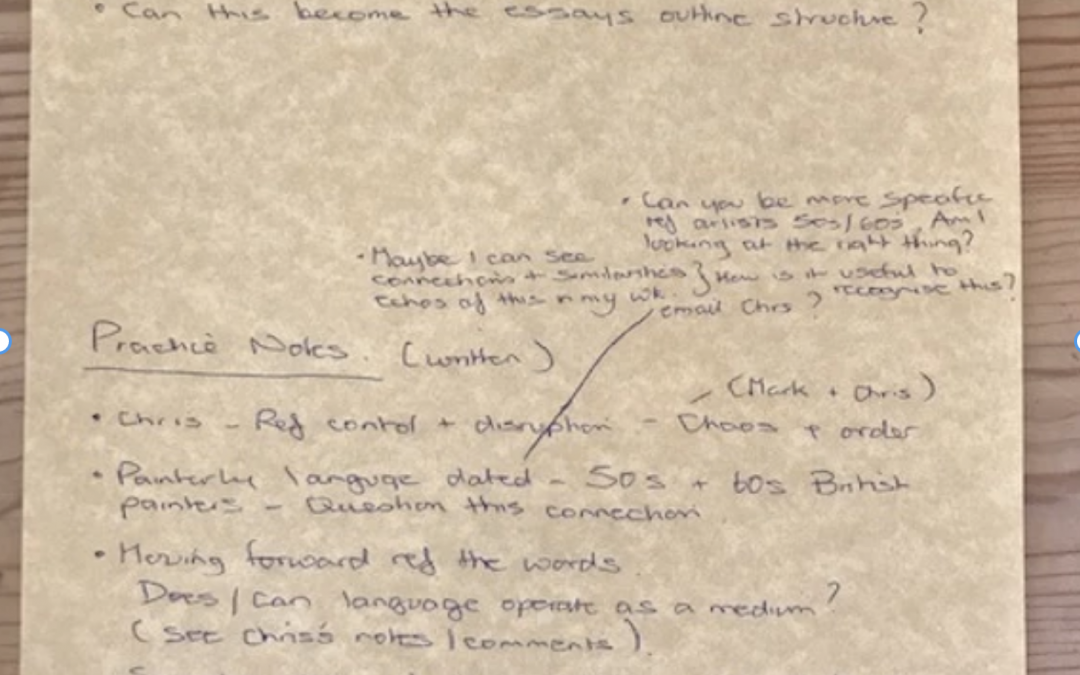Email to Chris
Me:
The reference you gave me to look at British painters of the 50s and 60s for connections with my work is not clear to me. I can see it clearly with the Lanyon piece and have been looking for further examples for a wider sense of the period you refer to. I found an article on the Tate website ‘1950 Abstraction in Britain’, artists such as Gillian Ayres, Ralph Rumney, Ben Nicholson, Terry Frost, Heron,Roger Hilton etc.
Am I looking at the right thing?
I think I have been influenced by the St Ives School in terms of the newer work, not consciously but it is work I have been exposed to a lot. I think that there is a similar colour palette to the work which was produced in the 18th century Sublime period of painters which has also influenced my work in the past in terms of colour in particular.
How is it useful to me to recognise and examine these similarities?
Would it be interesting for me to pull away from this as an exercise do you think?
Chris:
As to the 50s works in question – well, there are some of the St Ives School that it refers to, especially those influenced by Rothko, including Lanyon, early Brian Rice (his show in Exeter Museum is closed due to the virus unfortunately) or Clifford Fishwick, early Trevor Bell, Roger Hilton etc, but I don’t feel we should get too specific (indeed it would be as relevant for me to have gone instead to New York in the 50s – from where St Ives got it, in the main).
My thought was to link you to an ongoing/recurring painterly language, so as to think about the conversations we have with history, rather than it signifying solely your personal motivations for the form. This potentially does two things – makes you sharper with your decision making (because you have a broader frame of reference), and less tolerant of repetitious structures (whereas at the moment they might denote a personal ‘style’ or motif).
So, in answer to your key question at the end – yes, I think pulling away to look at what else might happen would be a worthwhile thing to try at this stage, with the expectation that you will likely return to the vortices (perhaps with more understanding) at a later stage.

Recent Comments